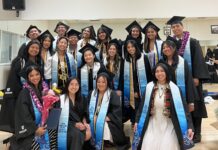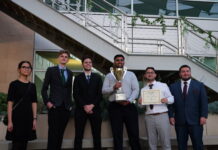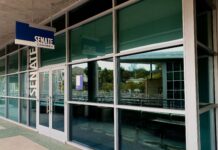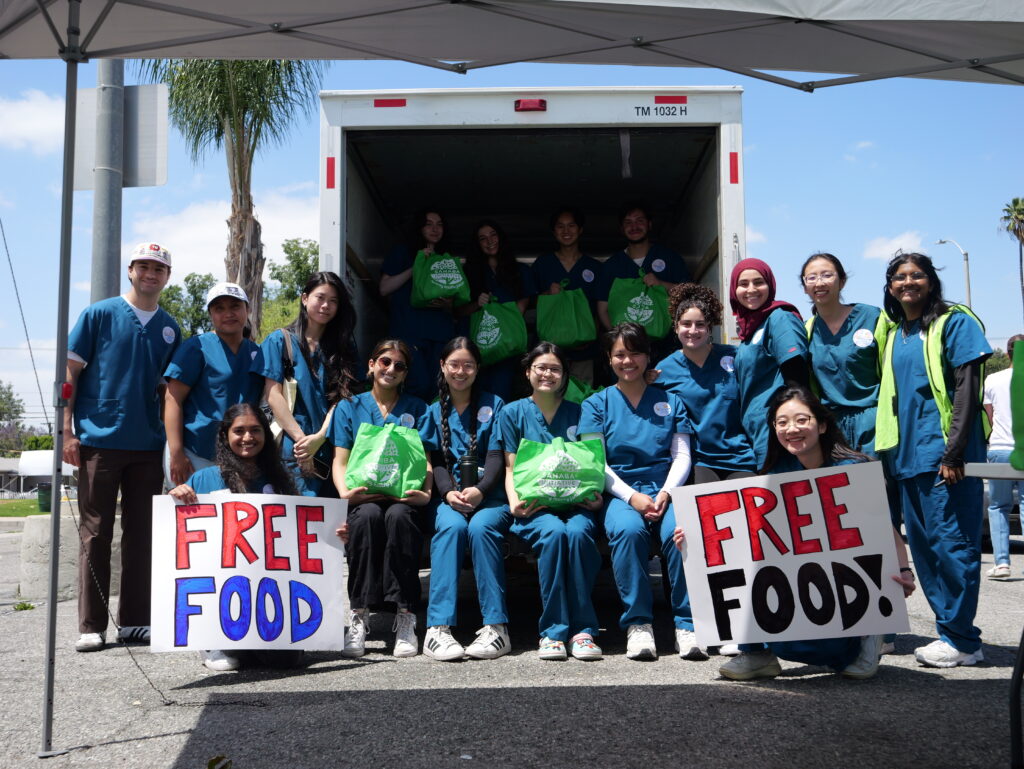
Yaser Naji, a second-year biochemistry major and incoming officer of the social services committee at RFC, shared that the purpose of the event is to “alleviate some of the [health disparities and] some of those struggles that are faced by families going through socio-economic difficulties.”
This year, the event organizers explained that they had reached out to over 100 donors in a collective team effort, and got a few responses back. Their main partners for this year were Sahaba Initiative, “who had around 200 food bags to be distributed.” Other partnerships included Crossword Church, The Shifa Society at the University of California, Riverside (UCR), AIDS Healthcare Foundation (AHF) HIV testing and Uplift Charity.
Board Secretary for the Board of Trustees for Sahaba Initiative, Mohammed Kuko, shared details about Sahaba’s involvement in the event. Sahaba Initiatives was founded over a decade ago with the mission “to transform communities and support families in crisis through addressing core areas in housing, hunger, economic stability, and well-being.” Kuko notes they also work on other community needs, “battling food insecurity, helping the community out there.”The annual food drive hosted by RFC is one of many events that Sahaba does in partnership with the city of Riverside where they provide food from their food pantry.
Sahaba Initiatives has partnered with RFC since the inception of the Annual Food Drive. Kuko expressed, “We’re just really thankful to be partnered with the Riverside Free Health Clinic for this event and we hope to do it for many more years [to come].”
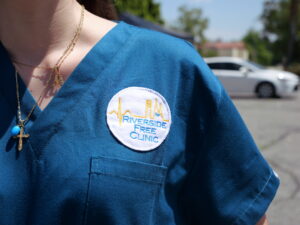
As the event saw more drivers entering the lot and receiving aid from RFC, Marina Nassar, a fourth-year biology major with a minor in psychology and the Personnel Manager for RFC explained the importance of aiding those in need in a city like Riverside. She explained how “Riverside is a food desert, and it’s also extremely underserved. We have a lot of underserved communities within the Inland Empire and Riverside specifically … So we decided to put together these food bags and hygiene kits, just to ensure that we’re taking care of the public health situation in Riverside, but also ensuring that we’re building that bridge and sealing the gap of food insecurity in Riverside.”
For future projects, Naji hopes that change will accelerate through RFC: “We’ll continue to have innovative ideas and not just stick to our annual food drives. [Coming] up with new ideas, new projects, to help address the health disparities here in the Inland Empire. I hope quarter by quarter we keep improving, keep adding more services, [and] expanding our services to cater [to] more patients. And hopefully, as a result of that, we can actually see a future where health disparities are addressed and alleviated.”



